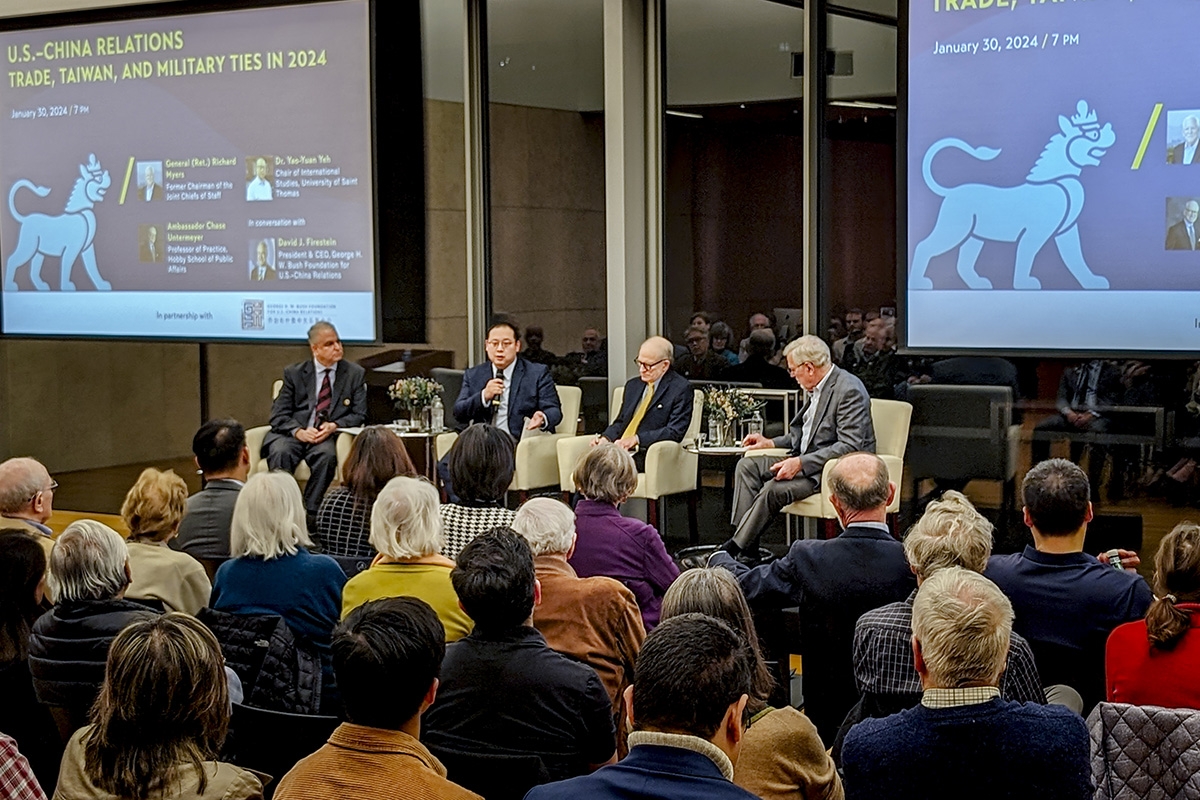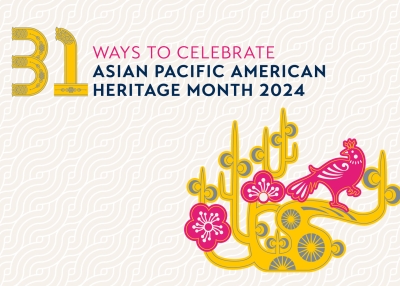Experts Analyze Future Prospects of U.S.–China Relations in 2024

HOUSTON, February 19, 2024 — Asia Society Texas welcomed General Richard B. Myers, Retired Chairman of the Joint Chiefs of Staff; Chase Untermeyer, former U.S. ambassador to Qatar; and Dr. Yao-Yuan Yeh, University of St. Thomas Chair of International Studies, for a conversation on the current international landscape and future possibilities of the U.S.–China relationship. The speakers were joined by David Firestein, President and CEO of the George H. W. Bush Foundation U.S.-China Relations, who moderated the program.
Help Us Build a More Inclusive World
The panel explored the evolving dynamics of the bilateral relationship following the November 2023 Asia-Pacific Economic Cooperation (APEC) Summit where U.S. President Joe Biden met with Chinese President Xi Jinping in San Francisco. Central to the discussion were assessments of military capacities, avenues for collaboration, and the commercial and economic ties. Impacts of Taiwan's recent presidential election — won by Democratic Progressive Party (DPP) candidate William Lai (Lai Ching-te) — were also addressed.
As he acknowledged the imperative for cooperation between the two nations, Untermeyer also underscored the inherently competitive nature of the U.S.–China relationship. The panel then considered the potential effects of Lai's election on cross-strait relations and highlighted the pivotal nature of Taiwan's strong partnership with the U.S., citing mutual interests in democracy and trade.
Dr. Yeh shared additional insights into the prevailing sentiment among Taiwanese citizens, noting a preference for maintaining the status quo, with a small faction advocating for independence. He delineated the disparities between Taiwan and Hong Kong and posited unique challenges to potential reunification, while advocating for continued talks between China and Taiwan as the preferred course of action.
Throughout the conversation, diverse viewpoints emerged regarding China's existing capabilities and the ramifications of its continued economic growth. Myers spotlighted certain internal dynamics, like demographic shifts and economic challenges, as focal points of concern for China’s leadership. The speakers agreed that these challenges have the potential to reshape China's global influence.
As the program concluded, the panel engaged in a stimulating exchange with audience members that delved into an array of topics, such as U.S. involvement in the Ukraine conflict, the prospects for natural gas from Texas to be exported to China’s market, and the outlook for regional security dynamics.
About Asia Society Texas
Asia Society Texas believes in the strength and beauty of diverse perspectives and people. As an educational institution, we advance cultural exchange by celebrating the vibrant diversity of Asia, inspiring empathy, and fostering a better understanding of our interconnected world. Spanning the fields of arts, business, culture, education, and policy, our programming is rooted in the educational and cultural development of our community — trusting in the power of art, dialogue, and ideas to combat bias and build a more inclusive society.




